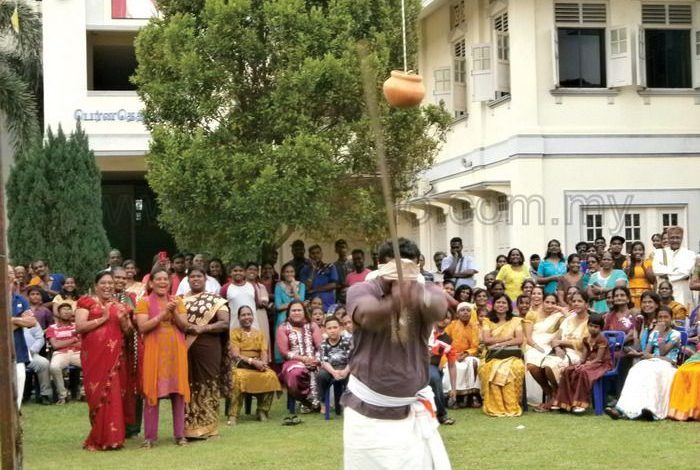

Pongal or Harvest Festival is celebrated by Tamils throughout the world, regardless of their religious beliefs, on the first day of Tamil month Thai which is also the Tamil New Year and falls in mid-January. Pongal translates to “spilling over” and the festival derives its name from the tradition of boiling rice and milk in a pot till it starts overflowing. The overflowing pot symbolises fulfilment.
Pongal is celebrated over four days. The day before Pongal is called Bhogi and on that day all old stuff from the house are discarded and burnt. The first day of Pongal is known as Surya Pongal or Sun Pongal and making of pongal in a pot takes place in the morning. The second day is dedicated to cattle and is called Mattu Pongal or Cow Pongal and the cattle are bathed and decorated and given a day of rest. The third and final day is called Kaanum Pongal or Seeing Pongal and visits are made to relatives and friends’ houses. During ancient days this was used for matchmaking for sons and daughters.
Annakkili Rasiah, President of cultural group of Our Lady of Lourdes Church in Silibin said that the church has been celebrating Pongal from the early eighties. This year the event was jointly organised with Thamilar Thirunal Association and in addition to the usual parishioners, many Hindus and Muslims participated.


The function started with making the pongal followed by cultural dances like kolaattam (dancing with stick) and mayilaattam (peacock dance). For the first time a traditional game called Uri Adithal, where, with the help of a stick, blindfolded participants had to break a clay pot hung up high above their heads was organised. Many people young and old participated.
There was a colouring competition for primary school students and a kolam contest and prizes were given to winners.
Residents of Buntong celebrated Pongal at Dewan Kg Baru which was organised by DAP Ipoh Barat. Here also pongal was made and the usual cultural dances performed.
Pongal gives an opportunity for children, men and women to don traditional dress. This is a celebration whereby folk dances are promoted and keeps the culture going.
A. Jeyaraj


